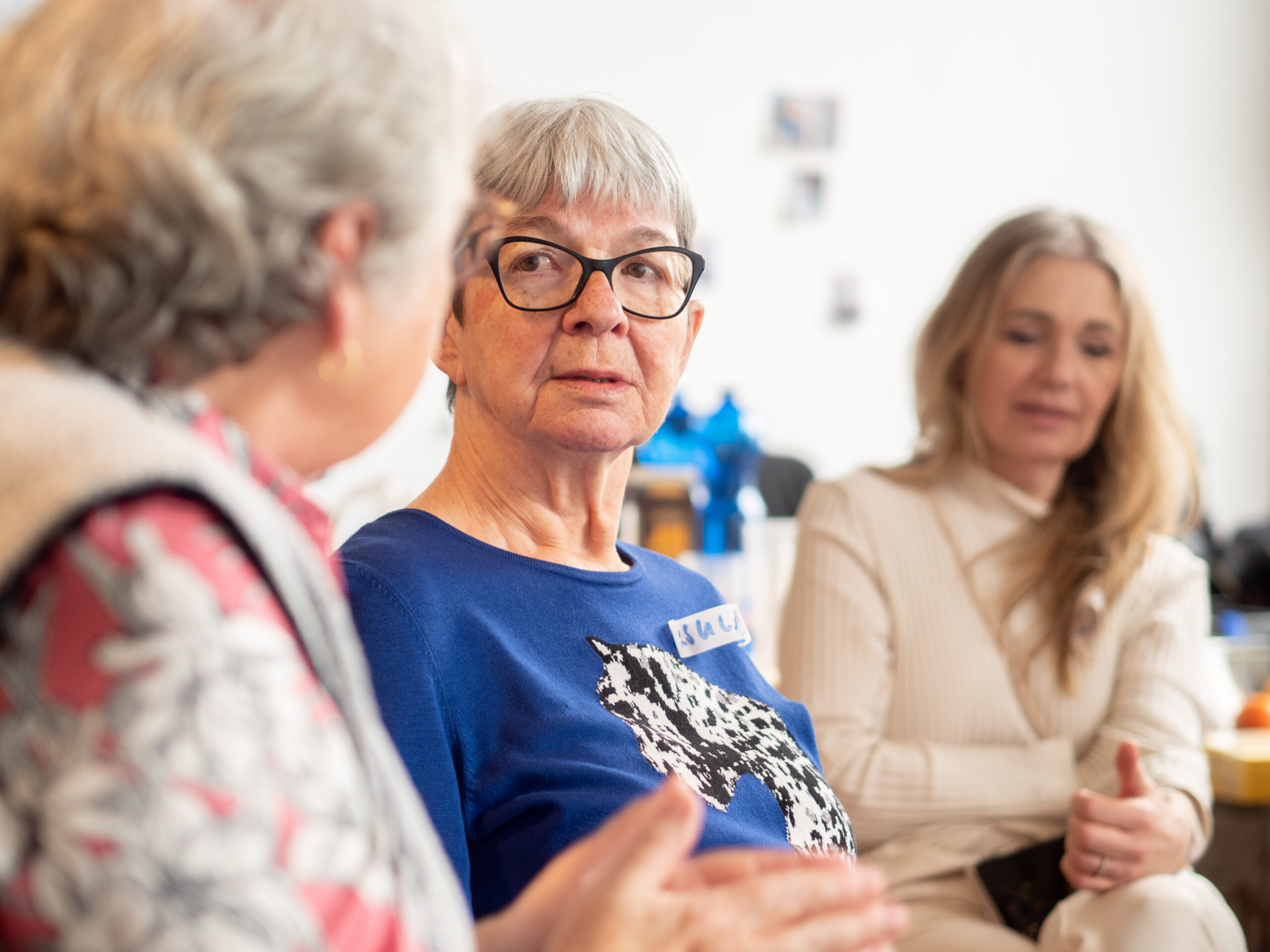Navigating Depression Among Seniors in Modern Times
As the sun sets in the golden years, a hidden struggle often emerges within the aging population – depression. Far from being a normal part of growing older, depression among seniors demands our attention and understanding. In this article, we delve into the complexities of depression among seniors in the modern age, shedding light on its prevalence, causes, challenges, and crucial strategies for support.

The Hidden Epidemic
Depression is not a condition confined to any specific age group, and seniors are no exception. In fact, the World Health Organization states that approximately 7% of adults over the age of 60 globally suffer from depression. However, this statistic only scratches the surface, as depression often goes unnoticed or is dismissed as a natural part of aging.
Unmasking the Causes
Several factors contribute to depression among seniors in the contemporary world. The loss of loved ones, retirement, health issues, and a sense of isolation due to changing social dynamics can lead to feelings of sadness and despair. Moreover, the digital age has brought its own set of challenges, as seniors struggle to adapt to rapid technological advancements, potentially exacerbating feelings of isolation.
Challenges and Misdiagnoses
Identifying depression among seniors can be particularly challenging. Symptoms might be attributed to physical ailments or dismissed as a consequence of age-related changes. This tendency to misinterpret depression as a normal part of aging can delay proper diagnosis and treatment, further deteriorating the individual's mental health.
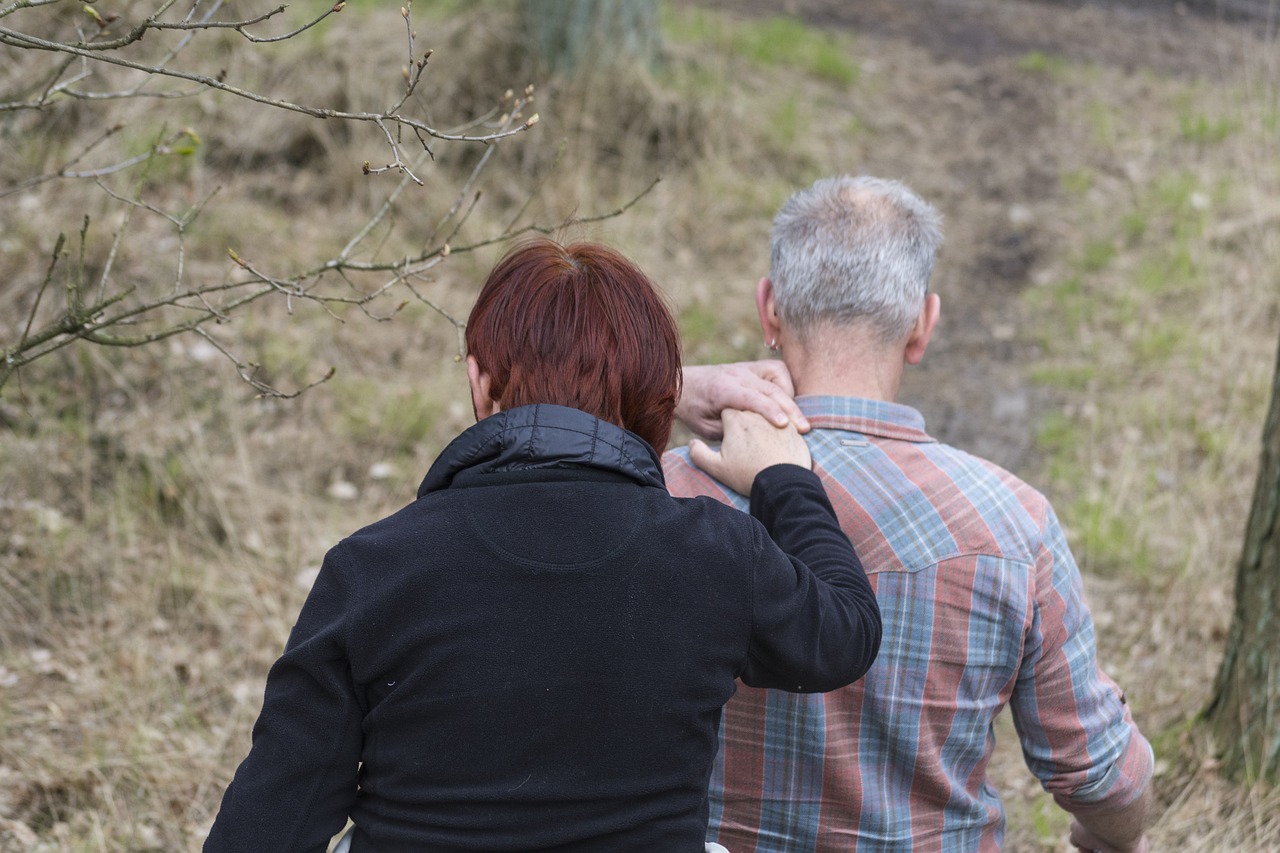
Breaking the Silence: Strategies for Support
- Raising Awareness: Dispelling the notion that depression is a "natural" aspect of aging is the first step. Raising awareness among seniors, caregivers, and healthcare professionals can encourage early intervention.
- Integrated Healthcare: Holistic healthcare that addresses both physical and mental well-being is essential. Ensuring that healthcare professionals consider mental health as a crucial aspect of overall health can lead to better diagnosis and treatment.
- Community Engagement: Combatting isolation is pivotal. Creating and maintaining community spaces, clubs, and support groups can offer seniors a sense of belonging and purpose.
- Family and Caregiver Education: Equipping family members and caregivers with the knowledge to identify signs of depression can lead to timely interventions.
- Access to Mental Health Services: Ensuring easy access to mental health professionals who are trained to address the unique needs of seniors can make a significant difference in treatment outcomes.
- Technological Inclusion: Seniors can benefit from learning and utilizing technology to stay connected with loved ones, access information, and engage in virtual social activities.
The Call for Compassion and Understanding
Depression among seniors in the modern era necessitates a collective effort to foster a culture of compassion and understanding. By dispelling the myths surrounding depression and recognizing the signs, we can offer seniors the support they deserve. As society marches forward, let's ensure that our seniors aren't left in the shadows, but rather embraced with open arms, enabling them to live their later years with the mental well-being they deserve.
Eyes on the Prize: Tips to Improve Seniors' Vision
Good vision is a precious gift that allows us to appreciate the beauty of the world and maintain our independence. As we age, it's not uncommon for our eyesight to change, but there are proactive steps seniors can take to improve and preserve their vision. In this blog post, we'll explore practical tips to help seniors maintain and enhance their sight, ensuring they continue to see the world clearly and vibrantly.

- Regular Eye Exams
Routine eye examinations are essential for seniors. These exams can detect early signs of eye diseases like cataracts, glaucoma, macular degeneration, and diabetic retinopathy. Early diagnosis and treatment are crucial for preserving vision.
- Maintain a Healthy Diet
A balanced diet rich in vitamins and minerals is essential for eye health. Foods like leafy greens, carrots, sweet potatoes, and fish high in omega-3 fatty acids can support optimal eye function. Nutritional supplements, as recommended by a healthcare professional, can also be beneficial.
- Stay Hydrated
Proper hydration is vital for overall health, including eye health. Dehydration can cause dry eyes, which can be uncomfortable and impact vision. Seniors should aim to drink an adequate amount of water daily.
- Protect Your Eyes from UV Rays
Prolonged exposure to UV rays can contribute to eye problems, including cataracts and macular degeneration. Seniors should wear sunglasses with UV protection when outdoors, even on cloudy days.
- Quit Smoking
Smoking is a major risk factor for eye diseases such as macular degeneration and cataracts. Quitting smoking can significantly reduce the risk of developing these conditions and improve overall health.
- Manage Chronic Health Conditions
Seniors with chronic health conditions like diabetes should closely manage their conditions to prevent diabetic retinopathy, a leading cause of blindness. Regular check-ups and blood sugar control are crucial.
- Use Proper Lighting
Good lighting is essential for seniors to see clearly. Adequate lighting can reduce eye strain and make reading, cooking, and other tasks easier. Consider installing task lighting in specific areas, such as over kitchen counters and reading nooks.
- Monitor Medications
Certain medications can have side effects that affect vision. Seniors should discuss their medications with their healthcare provider to ensure they are not adversely impacting their eyesight.
- Stay Physically Active
Regular physical activity can improve circulation, which is essential for eye health. Engage in low-impact exercises like walking or swimming to maintain overall well-being.
- Eye Exercises
Simple eye exercises can help maintain flexibility and focus. Practice activities like rolling your eyes, focusing on a distant object for a few seconds, and then refocusing on a nearby object. These exercises can reduce eye strain.
- Adequate Rest
Getting enough sleep is crucial for overall health, including eye health. Adequate rest allows the eyes to recover and prevents eye fatigue.
- Reduce Screen Time
Extended screen time, whether on computers, tablets, or smartphones, can lead to digital eye strain. Seniors should take regular breaks, adjust screen brightness, and use screen filters to reduce strain.
Sight is a precious sense that greatly enhances our quality of life. Seniors can take proactive steps to maintain and improve their vision, from regular eye exams and a healthy diet to protecting their eyes from UV rays and managing chronic health conditions. By incorporating these tips into their daily routines, seniors can continue to enjoy clear and vibrant vision well into their golden years. Remember, it's never too late to prioritize eye health!
Insightful feedback on elderly smartphone users’ needs and concerns during co-creation workshop in Zurich
3rd co-creation session was organized in the facility of IAF in Zurich. A bunch of new impressions and comments were delivered during the workshop which aimed to list improvements to be made in the Easierphone app. It also brought a new perspective on adult users’ needs regarding the use of smartphones.
IAF team gathered a group of seniors to test all Easierphone modules and ask in-depth questions about general impressions, concerns, and specific situations when the modules could be useful as well as answer many questions, especially regarding privacy policy and safety factors.

Attendees were curious about how the movement tracking module is working and what kind of information will be available for the caregiver. What is important, Easierphone occurred to be useful for people suffering from dementia. A tracking module with remote assistance can help follow a wandering person when one is lost. It can be also supported by the “Emergency” button to immediately inform the dedicated person when a dangerous situation happens and immediate help from the assistive person is needed.
Participants of the session also raised up an issue on personal data access by the person who will remotely support the elderly user. It is important to mention that the consent form will be clearly formulated to avoid the situation when the user doesn’t know to which data the assistant will have access.
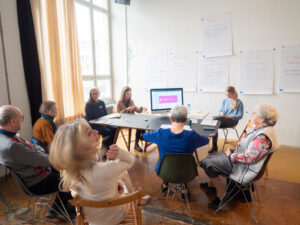
Overall, the Easierphone apps were assessed positively as a needed tool for an elderly person. Security of personal data and safety in daily usage were the most important issues for IAF’s early users. The Easierphone team will put attention, especially to these aspects of the solution before it will be introduced to the market.
Want to test the app and become an early adopter? Contact us:
Why Encouraging Seniors' Activities Is a Caregiver's Essential Duty?
As caregivers for seniors, you understand the profound impact your support has on their overall well-being. One of the most critical aspects of senior care involves promoting an active and engaged lifestyle. In this article, we will explore the importance of encouraging active seniors and seniors' activities, shedding light on the benefits it brings to their physical, mental, and emotional health.
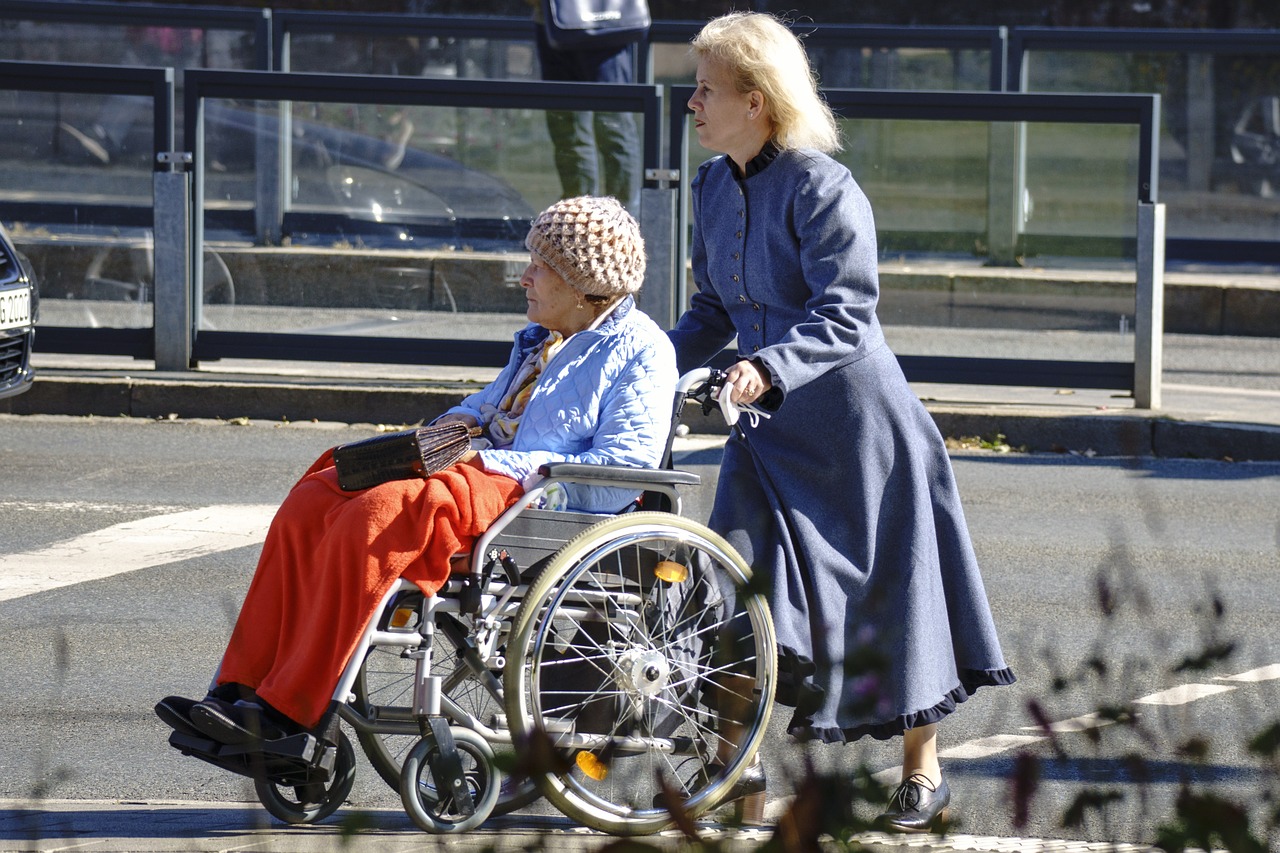
- Physical Health Benefits for Active Seniors:
Encouraging seniors to stay active through various activities is key to maintaining their physical health. Here's why:
- Enhanced Mobility: Seniors who engage in regular physical activity are more likely to maintain their mobility and independence for longer.
- Chronic Disease Prevention: Physical activity can help prevent or manage chronic conditions such as heart disease, diabetes, and osteoporosis, which are prevalent among seniors.
- Fall Prevention: Activities like balance exercises and strength training can significantly reduce the risk of falls, which can have severe consequences for seniors.
- Mental Well-being and Cognitive Health:
Keeping seniors mentally engaged through seniors' activities is crucial for their cognitive health. Here's how it helps:
- Cognitive Stimulation: Active seniors are more likely to remain mentally sharp, with a lower risk of cognitive decline and conditions like dementia.
- Mood Enhancement: Seniors who participate in activities often report better mood, reduced anxiety, and lower rates of depression.
- Social Interaction: Seniors' activities provide an excellent opportunity for social engagement, reducing feelings of loneliness and isolation.
- Emotional and Psychological Benefits:
Emotional and psychological well-being are essential for a high quality of life among seniors. Active seniors experience several advantages:
- Sense of Purpose: Engaging in activities and hobbies gives seniors a sense of purpose and fulfillment.
- Stress Reduction: Participating in seniors' activities can be a great stress-reliever, helping seniors better cope with life's challenges.
- Positive Self-esteem: Achieving goals and staying active fosters a positive self-image and boosts self-esteem among seniors.
- Social Connections:
One of the most significant benefits of encouraging seniors' activities is the opportunity for social interaction:
- Companionship: Seniors' activities allow them to make new friends and maintain existing relationships, reducing feelings of isolation.
- Emotional Support: Social interactions provide emotional support, which is essential for seniors' mental well-being.
- Community Engagement: Active seniors often feel more connected to their communities, which can lead to a sense of belonging and purpose.
- Sense of Achievement:
Participating in seniors' activities allows seniors to set goals, strive for personal growth, and experience a sense of accomplishment:
- Goal Setting: Active seniors can set and achieve goals related to their chosen activities, providing a sense of direction and motivation.
- Personal Growth: Seniors' activities challenge individuals to learn new skills and explore new interests, fostering personal growth.
As caregivers for seniors, your role in promoting active seniors and seniors' activities is pivotal. Encouraging an active and engaged lifestyle offers a multitude of benefits, ranging from improved physical health to enhanced cognitive function, emotional well-being, social connections, and a sense of accomplishment. It's not just about keeping seniors busy; it's about enriching their lives and helping them thrive during their golden years. By actively supporting and encouraging seniors' activities, caregivers can contribute significantly to the overall happiness and well-being of the seniors in their care.
Why Do We Sometimes Get Annoyed by Seniors?
It's a universal truth that we all experience moments of annoyance from time to time, and it's important to remember that no one is exempt from occasionally frustrating others, including seniors. But why is it that we may find ourselves getting annoyed by older individuals? In this blog post, we'll explore some common reasons for this phenomenon and offer insights into fostering better understanding and empathy.

- Generation Gap
One of the most apparent reasons for annoyance can be attributed to the generation gap. Seniors often come from a different era with unique customs, values, and communication styles. These differences can sometimes lead to misunderstandings and irritations. It's crucial to remember that what may seem outdated or old-fashioned to us might have been the norm during their formative years.
- Technology Challenges
As technology advances at a rapid pace, it can be frustrating for seniors who didn't grow up with smartphones and computers. Their struggles with new technology can lead to misunderstandings and impatience. Instead of becoming frustrated, offering patient and supportive guidance can make a world of difference.
- Slower Pace
Age often brings physical limitations, such as slower walking or talking. This can lead to impatience when interacting with seniors, especially in fast-paced environments. It's essential to remember that seniors may require more time to complete tasks, and rushing them can cause unnecessary stress.
- Memory Issues
Memory decline is a natural part of aging, and seniors may forget names, dates, or recent events. While this can be exasperating at times, it's vital to approach these situations with empathy and understanding rather than annoyance. Offering gentle reminders or helping them recall information can be more helpful.
- Resistance to Change
Seniors may be resistant to change, whether it's related to their routines, living arrangements, or medical decisions. Their resistance can be frustrating when you believe change is in their best interest. However, it's essential to respect their autonomy and involve them in decision-making whenever possible.
- Communication Challenges
Hearing loss or cognitive decline can affect seniors' ability to communicate effectively. Miscommunications or repeated questions can be irksome, but clear and patient communication can alleviate these challenges.
- Stereotyping
Sometimes, preconceived notions about seniors can lead to annoyance. Assuming that they are all technologically inept, frail, or mentally slow can be unfair and unhelpful. Remember that every senior is an individual with unique abilities and experiences.
- Patience and Empathy
Rather than getting annoyed by seniors, let's practice patience and empathy. They have lived through a lifetime of experiences and deserve our respect and understanding. Engaging in meaningful conversations, actively listening, and learning from their wisdom can help bridge generational gaps and foster positive relationships.
Conclusion
Getting annoyed by seniors is a common human experience, but it's essential to recognize that these moments are opportunities for growth, understanding, and building stronger connections. Seniors have much to offer in terms of wisdom, life experiences, and unique perspectives. By approaching interactions with empathy, patience, and respect, we can cultivate richer relationships and gain valuable insights from our older counterparts.
Unsung Heroes: The Common Challenges of Formal Caregivers in Senior Care Homes
Formal caregivers in senior care homes play a vital role in providing compassionate care to elderly residents. Their dedication and hard work often go unnoticed, yet they face a myriad of challenges in their day-to-day responsibilities. In this blog post, we will shed light on some of the common challenges that formal caregivers encounter while caring for seniors in care homes.
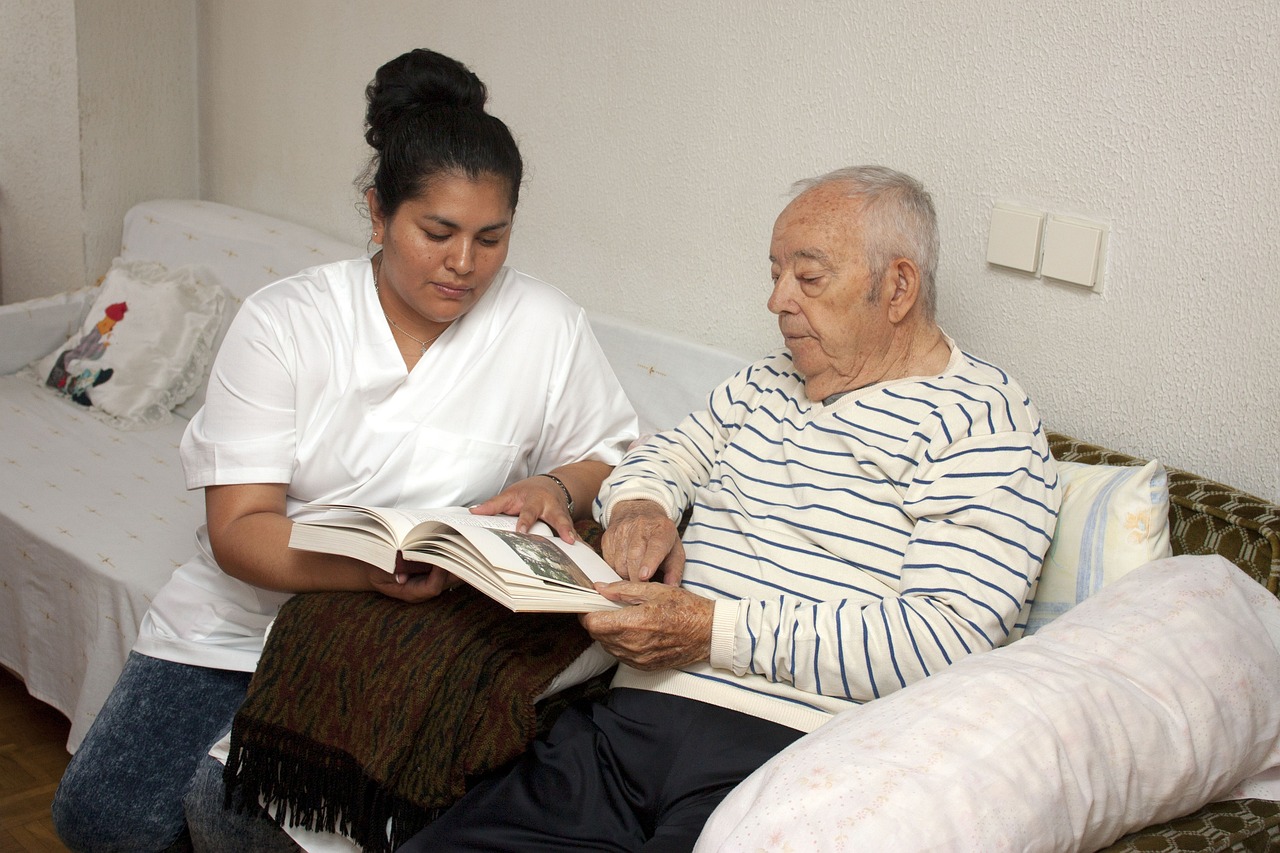
- Heavy Workload
One of the most significant challenges faced by formal caregivers is the heavy workload. Caregivers are responsible for assisting residents with various daily activities, including bathing, dressing, feeding, medication management, and mobility support. The demanding nature of these tasks can be physically and emotionally draining.
- Limited Staffing and High Turnover
Many care homes struggle with understaffing issues, leading to a high caregiver-to-resident ratio. This can make it challenging for caregivers to provide individualized care and spend quality time with each resident. Additionally, high turnover rates within the caregiving profession can disrupt continuity of care and create additional stress for those who remain.
- Emotional Strain
Providing care to seniors often involves emotional challenges. Caregivers build close relationships with residents and may witness the decline of their health and cognitive abilities. Coping with residents' emotional ups and downs can be emotionally taxing, leading to caregiver burnout and compassion fatigue.
- Cognitive and Behavioral Issues
Seniors in care homes may exhibit challenging behaviors associated with conditions such as dementia and Alzheimer's disease. Caregivers must be equipped to handle these behaviors with patience and understanding, even when they are unpredictable and challenging to manage.
- Lack of Training and Education
Insufficient training and education can leave caregivers ill-equipped to address the complex needs of senior residents. Formal caregivers need ongoing training in areas such as dementia care, palliative care, and communication skills to provide the best care possible.
- Safety Concerns
Caregivers are responsible for the safety of residents, which can be particularly challenging when dealing with mobility issues, fall risks, and residents with aggressive behaviors. Ensuring a safe environment for all residents requires constant vigilance.
- Emotional Attachment
Caregivers often develop deep emotional attachments to the residents they care for. While this can be rewarding, it can also make it difficult to cope with loss when a resident passes away or transitions to a higher level of care.
- Limited Resources
Care homes may struggle with limited resources, including funding and access to medical equipment and supplies. This can hinder caregivers' ability to provide the best possible care and may lead to frustration.
- Balancing Administrative Tasks
In addition to direct care responsibilities, caregivers are often required to complete administrative tasks such as documentation and medication management. Balancing these administrative duties with hands-on care can be challenging and time-consuming.
- Communication Challenges
Effective communication with residents, their families, and other healthcare professionals is crucial for providing quality care. Caregivers may face language barriers, cognitive impairments in residents, or difficulties in conveying complex medical information.
Formal caregivers in senior care homes are indeed unsung heroes, providing invaluable support and care to elderly residents. While the challenges they face are numerous and demanding, their dedication to improving the lives of seniors is commendable. Recognizing and addressing these challenges, providing ongoing training and support, and advocating for the well-being of formal caregivers are essential steps in ensuring the best possible care for seniors in care homes. It's important to remember that the work of these caregivers is a vital part of providing compassionate and dignified care to our elderly population.
Where to Find Professional Care for the Elderly?
As our loved ones age, ensuring they receive the best possible care becomes a top priority. Finding professional care for the elderly involves careful consideration of their unique needs and preferences. In this blog post, we'll explore various options and resources to help you make informed decisions about the care of your elderly family members.
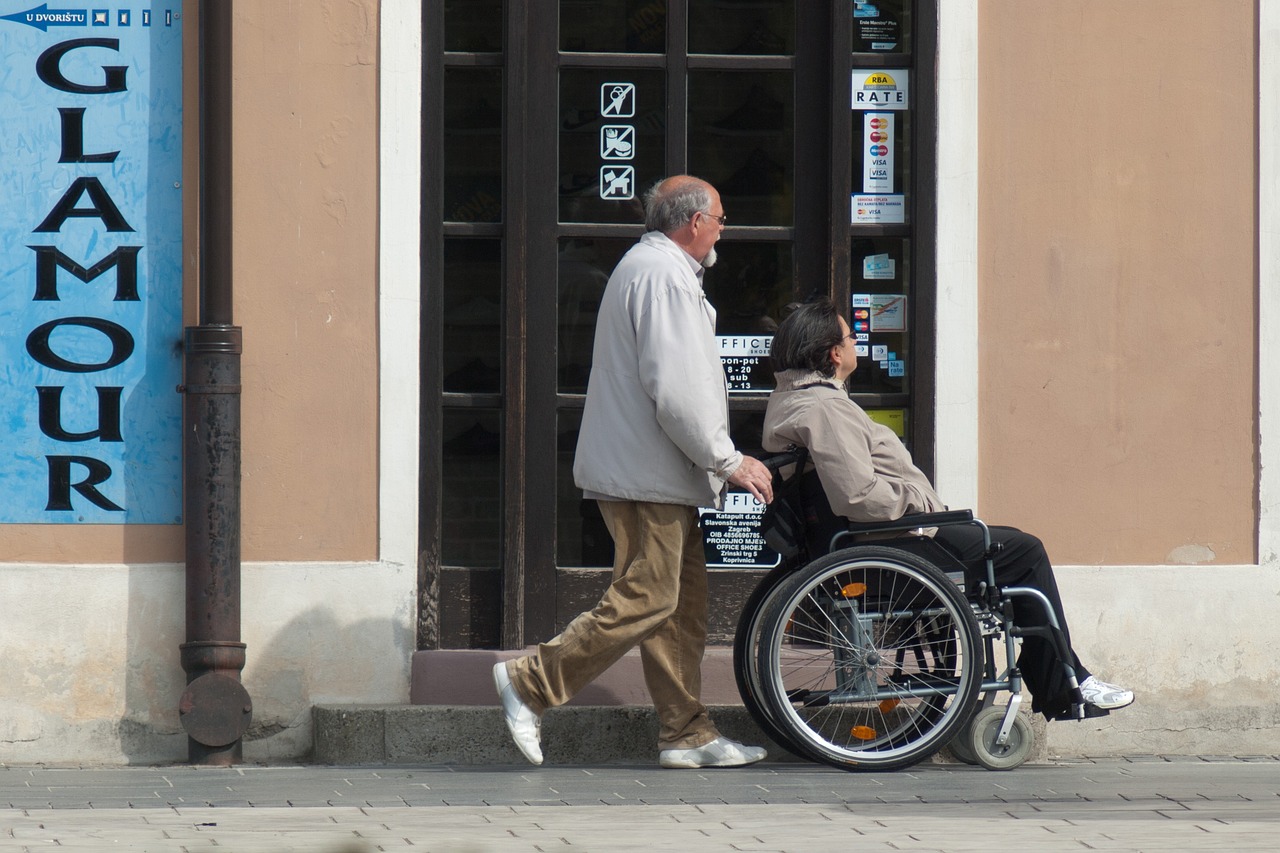
- In-Home Care Services
In-home care is an excellent option for seniors who prefer to age in the comfort of their own homes. Professional caregivers provide a range of services, including personal care, meal preparation, medication management, and companionship. To find in-home care services:
- Ask for Recommendations: Seek recommendations from friends, family, or healthcare professionals.
- Home Health Agencies: Look for licensed home health agencies that provide skilled nursing and therapy services in addition to personal care.
- Assisted Living Facilities
Assisted living facilities offer a supportive environment for seniors who require some assistance with daily activities but still want to maintain a degree of independence. To find assisted living facilities:
- Online Directories: Utilize online directories and websites specializing in senior living options.
- Tours and Visits: Schedule tours and visits to assess the facilities' amenities, cleanliness, and staff interactions.
- Nursing Homes
Nursing homes provide comprehensive care for seniors with complex medical needs or those who require 24/7 supervision. To find nursing homes:
- Medicare's Nursing Home Compare: Visit the official website to search for Medicare-certified nursing homes in your area.
- State Health Departments: Check with your state's health department for nursing home information and ratings.
- Memory Care Facilities
Memory care facilities are designed for individuals living with Alzheimer's disease or other forms of dementia. To find memory care facilities:
- Alzheimer's Association: Visit their website or contact your local chapter for guidance and resources.
- Consult with Healthcare Providers: Ask your loved one's healthcare provider for recommendations on specialized memory care facilities.
- Adult Day Care Centers
Adult daycare centers offer supervised daytime activities, socialization, and care for seniors while providing respite for family caregivers. To find adult day care centers:
- Aging and Disability Resource Centers: Contact your local ADRC for information on nearby centers.
- Online Search: Use online search engines to find adult daycare centers in your area.
- Hospice Care Services
Hospice care provides end-of-life support and comfort for individuals with terminal illnesses. To find hospice care services:
- Hospice Compare: Access the official Medicare website to search for hospice agencies and compare their quality ratings.
- Consult Healthcare Professionals: Discuss hospice care options with your loved one's healthcare team.
- Geriatric Care Managers
Geriatric care managers are professionals who specialize in coordinating and managing the care of older adults. To find a geriatric care manager:
- Aging Life Care Association: Visit their website to locate certified geriatric care managers in your area.
- Consult with Healthcare Providers: Ask your loved one's healthcare provider for referrals.
- Senior Living Communities
Senior living communities offer a range of options, from independent living to skilled nursing care, all within a single community. To find senior living communities:
- Online Search: Use online resources to explore various senior living communities based on your loved one's needs.
- Consult with a Senior Living Advisor: Seek advice from senior living advisors who specialize in matching seniors with appropriate communities.
Conclusion
When seeking professional care for the elderly, it's essential to assess their individual needs, preferences, and medical conditions. Conduct thorough research, ask for recommendations, and visit potential care providers to ensure the best possible quality of life for your loved ones as they age gracefully. Remember that the right care can make a significant difference in their well-being and overall happiness.
Calming Strategies: How to Comfort an Elderly Person in a Dangerous Situation
As caregivers, family members, or concerned individuals, it's essential to know how to calm down an elderly person when they find themselves in a potentially dangerous situation. Seniors may experience fear or anxiety more intensely, making it crucial to provide reassurance and support. In this blog post, we'll explore effective strategies to help calm an elderly person in such situations.
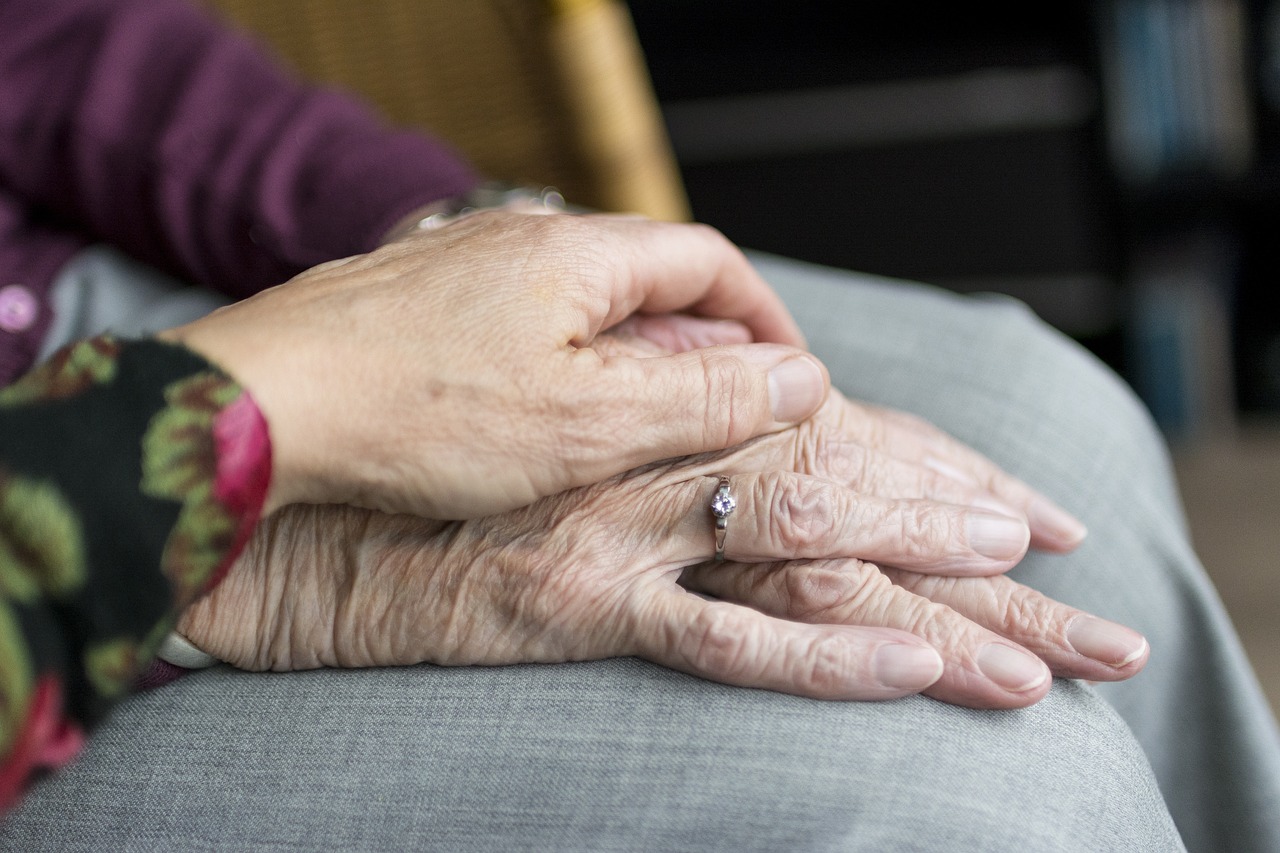
- Maintain a Calm Demeanor
When an elderly person is facing a dangerous situation, it's essential to remain calm yourself. Your composure can have a significant impact on their emotional state. Speak in a soothing and reassuring tone, and use gentle gestures to convey your support.
- Assess the Situation
Before taking any action, assess the situation carefully. Determine the nature and severity of the danger. Is it a physical threat, a medical emergency, or a safety concern at home? Understanding the situation will guide your response.
- Prioritize Safety
If the danger is immediate, prioritize safety above all else. Remove the elderly person from harm's way if possible. Ensure they are in a secure location and away from any potential threats. If it's a medical emergency, call for professional help immediately.
- Listen Attentively
Sometimes, all an elderly person needs is someone to listen to their concerns. Give them your full attention and validate their feelings. Encourage them to share their fears and anxieties, and let them know you are there to support them.
- Offer Reassurance
Reassurance can go a long way in calming their fears. Remind them that you are with them and will do everything in your power to keep them safe. Offer words of comfort and empathy, such as "I'm here for you" or "You're not alone."
- Provide Distraction
In less severe situations, distraction can be an effective calming strategy. Engage the elderly person in a pleasant conversation or suggest an enjoyable activity to redirect their focus away from the danger.
- Use Deep Breathing Techniques
Deep breathing exercises can help reduce anxiety. Encourage the elderly person to take slow, deep breaths. Inhale deeply through the nose, hold for a few seconds, and exhale slowly through the mouth. Repeat this process several times to help them relax.
- Contact Professionals
If the situation involves a medical emergency, contacting healthcare professionals or emergency services is crucial. Ensure that you have essential information, such as the person's medical history and any medications they are taking, readily available for the responders.
- Create a Safe Environment
After the immediate danger has passed, take steps to create a safe and secure environment for the elderly person. Address any safety concerns in the home, such as removing tripping hazards or installing grab bars in the bathroom.
- Offer Supportive Resources
Connect the elderly person with supportive resources, such as counseling or support groups, if they continue to experience anxiety or fear related to the dangerous situation. Professional help can provide valuable coping strategies.
Conclusion
Caring for an elderly person in a dangerous situation requires patience, empathy, and a calm approach. By maintaining a supportive presence, addressing their immediate safety, and providing emotional reassurance, you can help calm their fears and guide them through challenging moments. Remember that your presence and care can make a significant difference in their well-being and sense of security.
